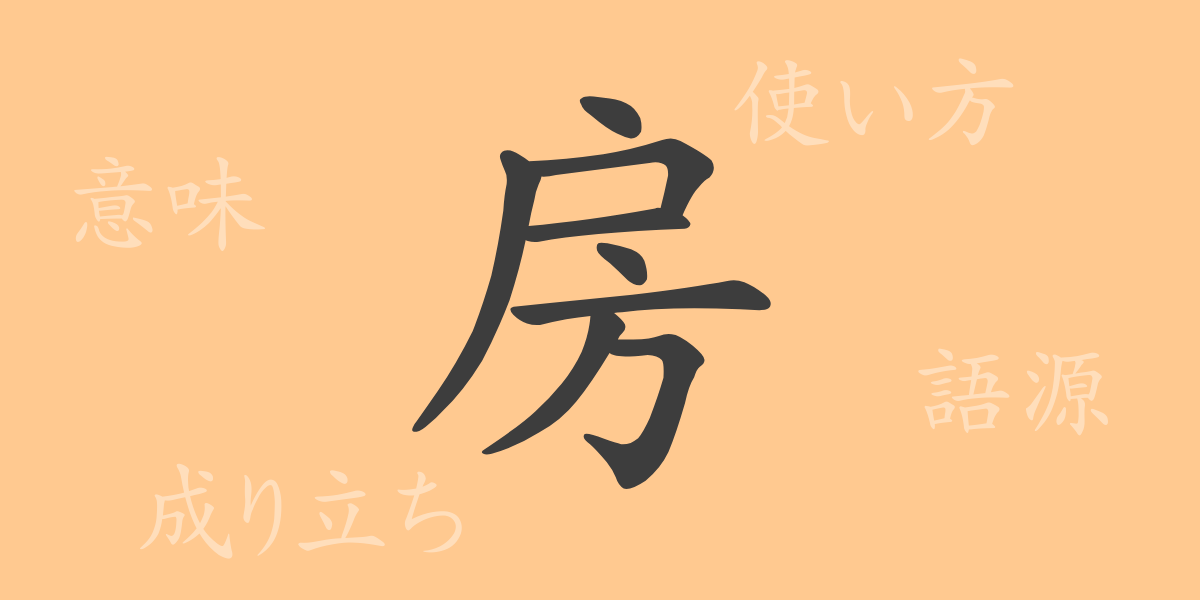The Japanese characters each hold a rich history, reflecting the evolution of culture and language. One such character is 房 (bou), a commonly used kanji in Japanese writing and conversation. Its use spans across various contexts since ancient times. In this article, we delve into the origins of 房 (bou), its modern-day applications, and explore idioms and proverbs that feature this kanji, unveiling its charm.
Origins of 房 (bou)
The kanji 房 (bou) traces its origins back to ancient China. Initially, it was associated with rooms inside a house, later expanding to mean “to separate” or “to branch out.” This evolution stems from the imagery of rooms divided within a house or fruits hanging from branches. Over time, it has come to encompass a broader range of meanings.
Meanings and Uses of 房 (bou)
房 (bou) holds multiple meanings. The most common usage refers to clusters of objects hanging together, as seen in “grape clusters.” It also denotes rooms or chambers, used in terms like “寝房 (shinbou)” (bedroom) and “客房 (kyakubou)” (guest room). Additionally, it signifies lineage or family branches, as seen in the context of “a family branch.”
Readings, Stroke Count, and Radical of 房 (bou)
The kanji 房 (bou) has distinctive readings and structure.
- Readings: The on’yomi (音読み) reading is “ボウ (bou),” and the kun’yomi (訓読み) reading is “ふさ (fusa).”
- Stroke Count: It consists of 8 strokes.
- Radical: The radical is “戶 (he).”
Idioms, Expressions, and Proverbs Featuring 房 (bou)
There are numerous idioms, expressions, and proverbs in Japanese that include 房 (bou). For example, the proverb “葡萄は房から房へ (budou wa fusa kara fusa e)” means that good things come one after another. Another example is “花房 (hanabusa),” referring to a cluster of flowers, which, when used with the expression “風呂敷を広げる (furoshiki o hirogeru),” signifies the grand unfolding of events. These expressions add vivid imagery to daily conversations and literature.
Summary of 房 (bou)
The kanji 房 (bou) embodies both the concepts of separation and gathering, as indicated by its form and origin. In Japanese, it is used in a wide array of contexts, from physical spaces to clusters of fruits, and even abstract concepts like family lineage. The rich meanings embedded in this single character highlight the depth of the Japanese language. As a 常用漢字 (jouyou kanji), 房 (bou) will continue to play a significant role in our language.

























